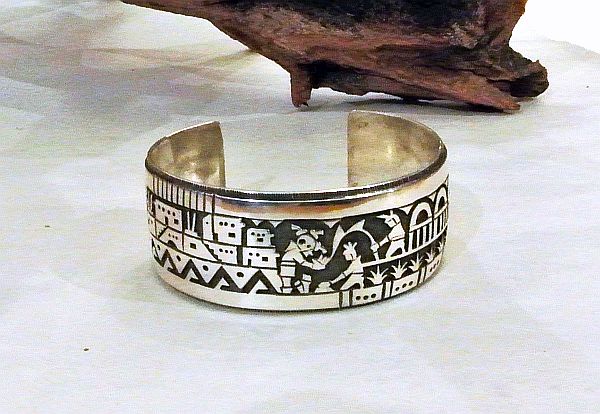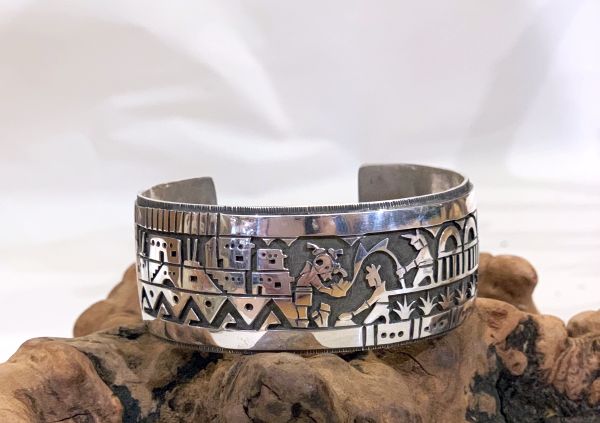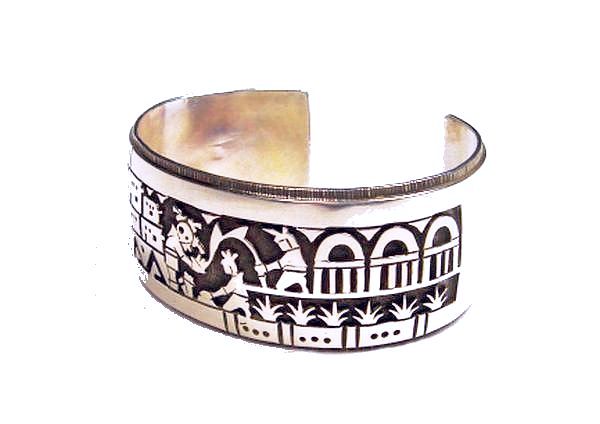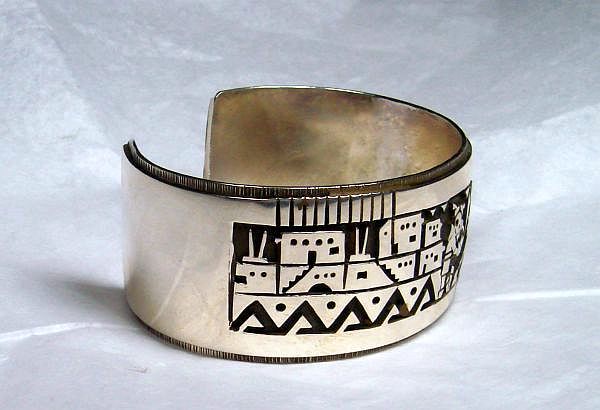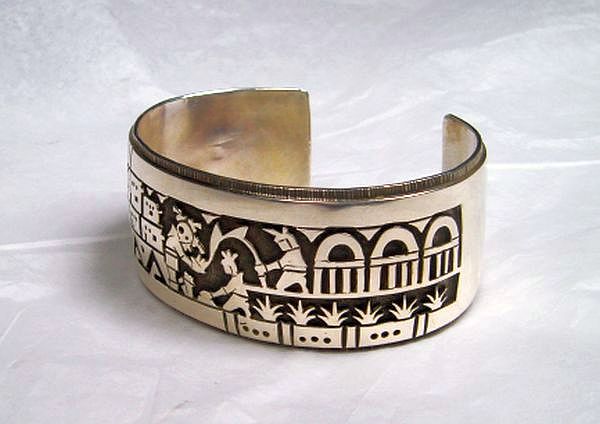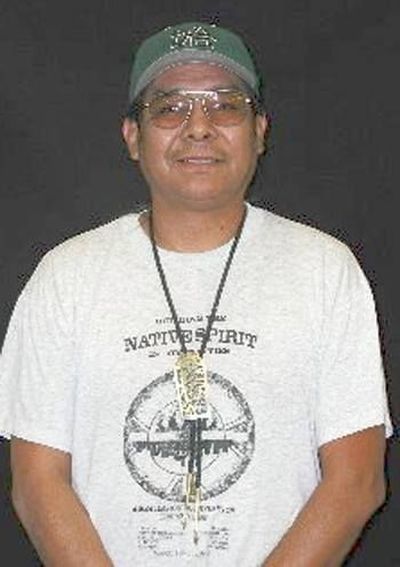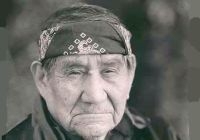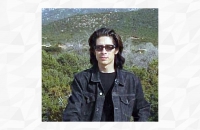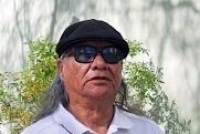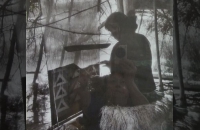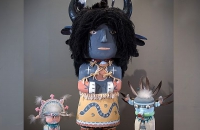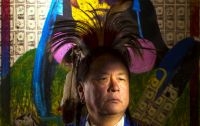J1165 Chalmers Day
Sterling silver overlay cuff by Hopi silversmith Chalmers Day. The 1” pictorial overlay cuff has a Pueblo, Kachina, man and woman, rain clouds and plants. The inside is 5 1/2" with a 1 1/8" gap.
Chalmers Day, who is known for his Hopi silver overlay, learned the art of silversmithing from Hopi master Preston Monongye. Dr. Gregory Schaaf in his book American Indian Jewelry Artist Biographies states: "Chalmers specializes in very detailed and sophisticated designs in the overlay technique. The quality of his artistry is exceptional. His compositions combine village scenes, cornfields, kachinas and more in a single piece…. His jewelry takes one on a journey into the Hopi world. His designs portray the life of the Hopi, their migrations, ceremonies and spiritual figures. He is recognized as one of the greatest overlay jewelers in history." (p. 133).
Chalmers was born in 1956 and has been an active silversmith since 1976.
About the artist
Chalmers Day
Chalmers Day was born October 24, 1956 in Keams Canyon, Arizona. Chalmers was given the Hopi name Dap-Hong-Va, and was born to the Corn and Water Clans. He is the grandson of Robert Satala, Sr., one of the Hopi’s earliest silversmiths and a merchant on the First Mesa in Arizona.
Chalmers learned his art from the Hopi master, Preston Monongye. As Dr. Gregory Schaaf in his book, American Indian Jewelry Artist Biographies states: “Chalmers specializes in very detailed and sophisticated designs in the overlay technique. The quality of his artistry is exceptional. His compositions combine village scenes, cornfields, kachinas and more in a single piece…. His jewelry takes one on a journey into the Hopi world. His designs portray the life of the Hopi, their migrations, ceremonies and spiritual figures. He is recognized as one of the greatest overlay jewelers in history.”
In 1976, Chalmers participated in one of Preston’s jewelry classes. Preston continued to advise Chalmers in his jewelry craft.
Like the Navajo Nation, the Hopi Indians were the benefactors of the Spaniards’ silversmith tradition. While the two nations’ influences are evident in the art of the other, Hopi jewelry artists sought to distinguish themselves from other Southwestern Indian jewelry artists.

